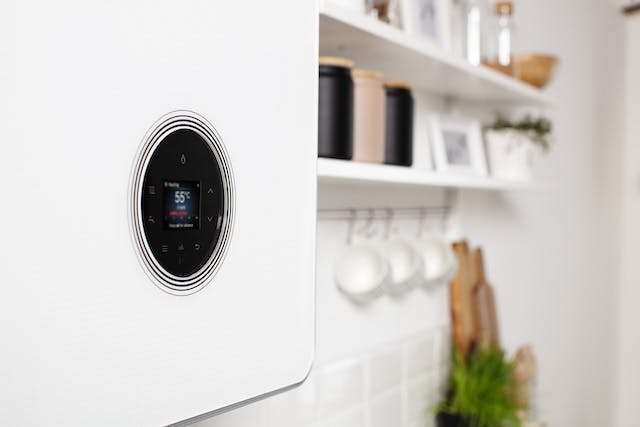Boiler corrosion is one of the leading causes of breakdowns and reduced system efficiency in homes across Dorset. Over time, rust and metal degradation can compromise the safety and performance of your central heating system, often leading to costly boiler repairs or even full replacement. Understanding how corrosion starts and how to prevent it is essential to keeping your boiler in good working condition for years to come.
What is Boiler Corrosion?
Boiler corrosion occurs when metal components inside the system come into contact with oxygen or water that contains impurities. These elements react with the metal surface, causing oxidation, which leads to rust and structural weakening. There are two main types of corrosion found in boilers: internal and external. Internal corrosion affects the pipes, heat exchanger, and other internal parts, while external corrosion occurs when leaks or moisture accumulate around the boiler casing.

Common Causes of Boiler Corrosion
Poor Water Quality
Hard water is a frequent issue across Bournemouth, Poole, and Dorset. It contains minerals such as calcium and magnesium that can create scale buildup, trapping moisture and encouraging corrosion. Over time, this restricts water flow and reduces the boiler’s efficiency.
Oxygen Ingress
Even small amounts of oxygen entering a closed heating system can cause oxidation. This typically happens when there are leaks, faulty seals, or when the system has been refilled frequently without proper inhibitor treatment.
pH Imbalance
Water that is too acidic or too alkaline can accelerate corrosion on metal surfaces. A balanced pH level is crucial to prevent internal damage to the system components.
Lack of Regular Maintenance
Skipping annual servicing gives corrosion the chance to go unnoticed. Small leaks or early signs of rust can quickly develop into more serious problems that may require professional boiler repairs in Poole or Bournemouth.
How to Prevent Boiler Corrosion
Use Corrosion Inhibitors
Adding a corrosion inhibitor to your heating system helps protect internal metal components by forming a protective layer. This slows down the oxidation process and prevents limescale buildup.
Schedule Annual Servicing
Regular servicing by a qualified heating engineer in Bournemouth or Poole ensures early detection of corrosion, leaks, and scale. A professional inspection can identify issues before they affect performance or lead to a complete system failure.
Install a Magnetic Filter
Magnetic filters capture rust particles and sludge from the water flowing through your system. By keeping your boiler clean internally, they improve efficiency and reduce wear on components.
Ensure Proper Water Treatment
Using a water softener or filter system can help reduce limescale and mineral buildup, especially in hard water areas across Dorset. Your heating engineer can recommend the best treatment based on your local water conditions.
When to Call a Professional
If you notice discoloured water, strange noises, or leaks around your boiler, corrosion may already be developing. It’s best to contact a qualified heating engineer in Dorset who can inspect your system, flush it if needed, and repair any affected components before the damage becomes irreversible.
Get in touch with heating engineers in Bournemouth, Poole, and Dorset
We offer expert maintenance and repair services to help extend the life of your heating system. Our experienced heating engineers are ready to diagnose and fix corrosion issues efficiently. Call us today on 01202 944416 and we’ll be happy to help.
